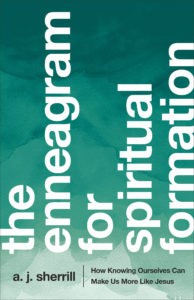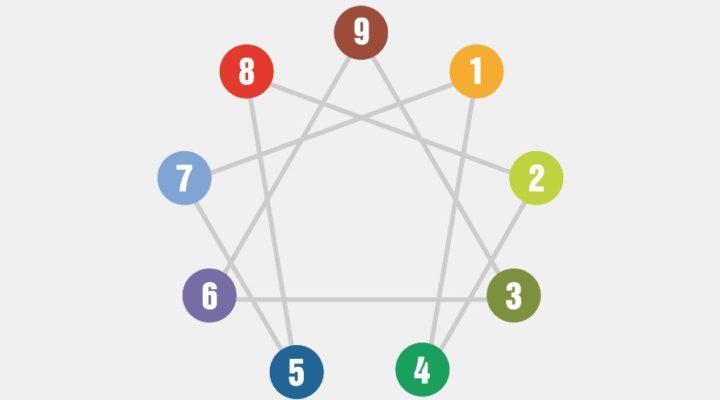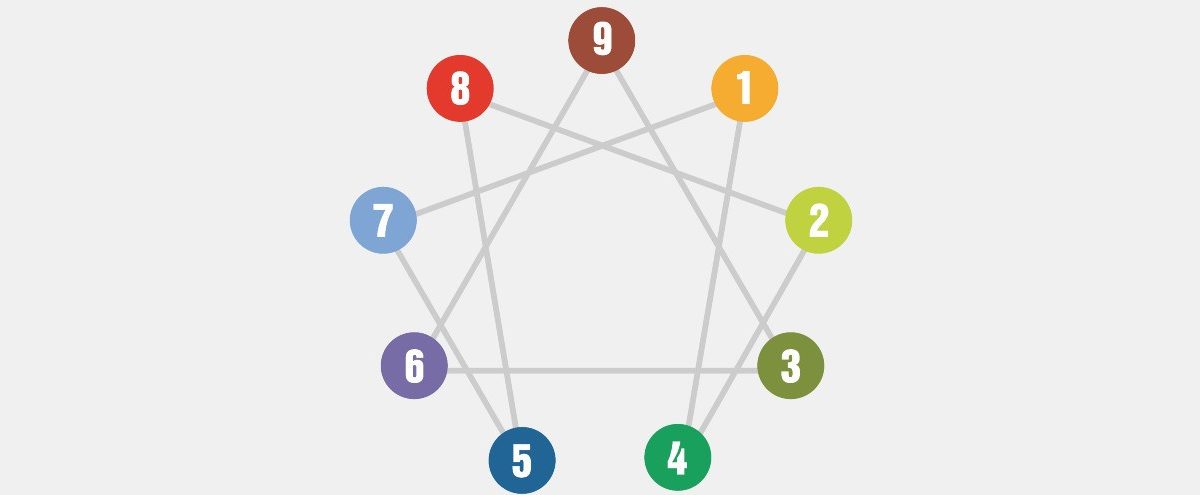Facing a freezing winter morning, a red-hot question began burning inside me. Some 30 community leaders were gathered to spend a day under the wisdom of Suzanne Stabile. She was teaching a boutique Enneagram workshop in Greenwich, Conn., hosted by Ian Morgan Cron. They had not yet written what would become their wonderful book, The Road Back to You. As she finished her teaching, I sprinted to the lectern with a searing question: “Who is writing about the Enneagram as a tool for Christian discipleship?”
Suzanne paused. She looked down, and then back at me, musing, “There is nothing I can think of at the moment.”
“Are you kidding me?” I thought.

A.J. Sherrill
I knew my life at that precise moment was about to shift toward a fresh obsession. For the next year, I immersed myself in every book available on the Enneagram, determining to use the theory as a tool toward life transformation for the health of the church and the glory of God. For me, the Enneagram is a means for spiritual growth, not an end to reducing ourselves and others to a number. The Enneagram should be seen as a river feeding into a greater body of water, not as a reservoir. It’s a thoroughfare, not a cul-de-sac.
As a pastor, I frequently step back and ask what the local church is meant to be doing. It’s easy to get lost in the grind of preaching, planning and programming. These are necessary tasks within a local church, but tasks alone are incomplete.
I often wonder about the other six days of the week. How are we equipping people for spiritual formation in everyday life? How is the church equipped to be the church? Do people have the tools they need to grow on days other than Sunday? Are we helping people discern their uniqueness and how they can most fully step into their God-given callings?
Far too often, for reasons far and wide, the church has sought to “batch” spiritual formation. We tend to treat humans like widgets and assume one size (or in this case, one practice) fits all. The implicit discipleship strategy in many faith communities is fivefold.
- Show up on Sunday.
- Read your Bible.
- Pray.
- Give.
- Repeat.
After 30 or so years of Christian discipleship, the hope is that a person will look and act a little more like Jesus. But most people don’t feel changed; they just feel older, perhaps a touch more cynical. In the church I was raised in, I never was taught that there are dozens of ways to encounter Scripture, or that maybe my personality is more suited to one particular kind of study than another. I never was taught that there are many ways to pray — that prophetic, contemplative and intercessory prayer gifts come more naturally (and supernaturally) to some personality types than to others.
“In the church I was raised in, I never was taught that there are dozens of ways to encounter Scripture.”
Whereas I support each of the five practices above, I do not believe we can take a one-size-fits-all approach to spiritual formation and expect optimal maturity. Enneagram expert Don Richard Riso suggests that there is no single spiritual practice that is right for all people in all places at all times. Churches need to equip people in a variety of spiritual practices because people are diversely motivated.
This is where the Enneagram is incredibly useful, because we can only change what we are able to name. The Enneagram helps us name subconscious patterns that are driving our visible behavior in the world. Once we awaken to those patterns — and the motives that drive them — we can discern specific spiritual practices that will support our growth into maturity.
“Discipleship” is a fancy term for the pathway of submission we choose in order to be spiritually formed into the image of Jesus. This active pursuit takes the form of spiritual practices, which are disciplines that consent to God’s slow and patient work in us over time. One must never lose sight that the intent of spiritual practices is always relational connection to God, not the practice itself. When the practice itself becomes the goal, you can be sure that a religious spirit of duty is lurking somewhere nearby.
Exposure to God’s presence through a commitment to spiritual practice, then, is what leads to transformation and ultimately to joining God in the renewal of creation. Moving beyond the Enneagram as a tool to classify people, we use the self-knowledge it imparts and create a personalized spiritual practice as a powerful tool for transforming the ego.
“One must never lose sight that the intent of spiritual practices is always relational connection to God, not the practice itself.”
Sandra Maitri reminds us, “The Enneagram is only a map. … It will not solve our problems, resolve our issues, or connect us with our depths. It is only information, whose function is to orient and guide us in our inner work, and unless that knowledge is put to use, we do not benefit from it. If it only remains intellectual, it may stimulate our minds and provide interesting diversion and entertainment, but this should not be mistaken for the actual work of transformation. That endeavor is neither rapid nor is it easy.”
Since that cold winter morning in 2015, my desire with the Enneagram has been (1) to demystify the theory as the solution to our greatest longings, and (2) to use the theory as a way to help people create a personalized spiritual pathway toward deeper transformation. The Enneagram is simply, but profoundly, a method to name our motives — both healthy and unhealthy — in order to choose new habits for ongoing life transformation.
 Excerpt taken from The Enneagram for Spiritual Formation by A.J. Sherrill, ©2020. Used by permission of Baker Publishing www.bakerpublishinggroup.com.
Excerpt taken from The Enneagram for Spiritual Formation by A.J. Sherrill, ©2020. Used by permission of Baker Publishing www.bakerpublishinggroup.com.
A.J. Sherrill has more than 20 years of experience as a pastor, including the role of lead pastor at Mars Hill Bible Church in Grand Rapids, Mich. He is an adjunct professor at Fuller Theological Seminary, where he teaches popular courses on transformational preaching and the Enneagram. He receives many speaking requests to lead Enneagram workshops across the country. He earned the doctor of ministry degree from Fuller Theological Seminary.
Related articles:


